Last fall I took a few minutes and wrote up reviews for some of the books I’d been reading. I have no idea if anyone read that post, let alone any of the books recommended, but it was a useful exercise for me to capture my fresh impressions. What worked for me, what I thought fell flat. Why I liked or disliked a book, and to what degree.
If you’re interested in book recommendations, Harper Reed crowdsourced a related question and the answers were interesting. Some of the recommendations there are excellent.
But of the books I’ve read over the past few months, here are some of the more notable ones both good and bad. I’m restricting myself to fiction because non-fiction reviews take too long, but for what it’s worth I’m finding Tuchman’s Pulitzer Prize-winning Guns of August less compelling than I expected.
With that preamble out of the way, some thoughts on books.
The Good
If On a Winter’s Night a Traveler, Italo Calvino
This is an experimental novel by Italo Calvino that is relayed in fragments, with a meta second-person narrative interwoven with segments from multiple fictional and incomplete novels. This book was another that made me wish that Goodreads split its ratings in two – one rating for technical execution, the second for enjoyment. If On a Winter’s Night would score very highly on the former, for me. It’s an impressive achievement, and I can’t say that I’ve ever read anything quite like it. Which makes it worth reading, and guarantees it a place in the “Good” section. That being said, I can’t say that I really enjoyed the process of reading it. I’m glad I read it, but I wasn’t as glad reading it if that makes sense.
Grapes of Wrath, John Steinbeck
As with One Flew Over the Cuckoo’s Nest, I somehow missed the Grapes of Wrath in school, in spite of having read quite a bit of Steinbeck along the way. This was unfortunate, as the Grapes of Wrath is a brilliant piece of work. The prose is excellent but accessible, it’s stylistically enjoyable and the characters are well drawn – not surprising because they were based in part on Steinbeck’s firsthand impressions of having spent time firsthand with many of the poor Okie migrants during the period. This was an important novel at the time, and if Piketty’s ideas on inequality are correct, will remain an important novel for the foreseeable future. Read this.
The Hundred-Year-Old Man Who Climbed Out of the Window and Disappeared, Jonas Jonasson
Frequently compared – even in the book’s own description – to Forrest Gump, this book certainly has a lot in common with that novel. It also read to me like a less literate version of Mark Helprin’s Memoir from Antproof Case. Some reviewers hold it up as the antithesis – except in the quality, for better and for worse, of the writing itself – to Larsson’s Millennium trilogy. Those comparisons are mostly reasonable, though it goes back to the slapstick well a bit too often to really present itself as the Swedish Forrest Gump. At times it has more in common with the old cartoon Mr Magoo. Going back to the two pronged rating above, I’d give Jonas Jonasson’s effort moderate marks for execution, but the novel itself is entertaining if ultimately light on the substance.
Tinker, Tailor, Soldier, Spy, John Le Carre
Though I’ve read a couple of novels by his son, I’d never actually read any John Le Carre. To rectify this, I picked up his classic Tinker, Tailor, Soldier, Spy. Like Ian Fleming before him, Le Carre was actually in the trade, not just writing about it. Unlike Fleming, Le Carre’s works are stark, understated and full of moral ambiguity. His experience as a spy is constantly evident, but not in a flashy way: his comprehensive understanding of the basic, pedestrian mechanics of spycraft are sublimated into a confusing world constantly engaged in silent war. It’s a realistic rather than stylized spy novel, which will work for some and not others. Fortunately for Le Carre, the former group is much, much larger than the latter.
The Book of Lost Things, John Connolly
This Neil Gaiman-esque adult fairy tale borrows heavily from actual children’s fairy tales – there is a curiously lengthy postscript/bibliography, in fact, which traces these influences in detail. It’s not quite Neil Gaiman-esque in terms of the quality, but it’s an entertaining and readable story. Given some of the descriptions and themes, however, it’s probably not the first fairy tale you read to a young child. Once they’re a bit older, however, they may recognize some of the drivers behind the youthful protagonist and I could see it becoming a favorite.
The Peripheral, William Gibson
This William Gibson novel was in every way a William Gibson novel. From the original, borderline-hallucinatory plot to the at times incomprehensible and yet taken for granted future tech, there is no point in reading the Peripheral when you’re not acutely aware that you’re reading Gibson. If you like Gibson, it’s probable that you’ll like The Peripheral. Not as much Neuromancer, but possibly more than the Bigend trilogy. I enjoyed it, even if he wrapped things up at the end a bit too neatly for me.
Revival, Stephen King
See above. If you like Stephen King, you’ll probably enjoy Revival. It’s a nod to Machen with some Lovecraftian elements, but is all King otherwise (regrettably including his recent and unfortunate tendency to match older male protagonists with improbable (much) younger female love interests). Still, that’s a footnote in the larger arc of the book, which is dark and spans time and distance. This won’t be counted among King’s greater works, but it was an entertaining read for me.
The Art of Fielding, Chad Harbach
This novel was born admist a great deal of hype; it commanded a sizable advance for a first time author, and a great deal of attention as a result – a place on the New York Times Best Book of the Year list included. And it’s about baseball. Put those things together, and you would have figured I’d have read this years ago. Instead, I just read it this year, and my immediate reaction was that reading it is like watching a slow-motion car accident. Self-destructiveness doesn’t begin to describe how just about every character torches their own lives in one way or another. Hell, if I’d known a great deal of the book was about a player with Steve Blass disease – an utterly horrifying prospect for anyone who’s ever played a sport – I may never have started the book in the first place. To the novel’s credit, however, by the time I figured that out it was too late, and I had to finish it. The baseball is well rendered, and Harbach can write. It was a painful read at times, but ultimately a rewarding one.
The Entertaining
The Niceville Trilogy, Carsten Stroud
I admit to being unfavorably disposed to a writer whose bio on his own website describes his own intellect using the adjective “staggering.” And each book in this trilogy is worse than the one that preceded it. All of that being said, this is an entertaining series which keeps horror, organized crime and bank job plots moving along at a reasonable pace, with each intermingling every so often. And from the bizarre set up to the conclusion, the series is original. The characters become more like cardboard cutouts as you go along, but in the beginning the series is several ticks above your usual thriller fare. If you treat these as pure entertainment – books for your next flight – you’re likely to enjoy them.
The Deep, Nick Cutter
A post-apocalyptic book that has nothing to do with the apocalypse, The Deep is equal parts Event Horizon, The Thing and The Abyss. It’s not exactly great art, but for purposes of entertainment it’s got just enough flesh on the characters to hold your interest. It also avoids some of the more obvious monster movie cliches in ways that books such as The Ruins didn’t, so as a horror read it gets the job done.
Ghost Fleet, P. W. Singer and August Cole
Picked this up before vacation following a recommendation from Tim Bray. As he acknowledged, it’s certainly not a great book – the characters in particular are cribbed liberally from your favorite war movie of choice. It’s no different, in that respect, from your average Tom Clancy novel, and Ghost Fleet is perhaps best described as an updated Red Storm Rising. With a few exceptions, the technical descriptions are plausible and the underlying assumption that the next war will be played out over networks seems certain, so the novel works and the pace is good. The book was of particular interest to me because one of the vessels playing a starring role, the USS Zumwalt, was built right here in Maine by Bath Iron Works, not ten minutes from where my parents live. It is just as weird looking as they describe. Ultimately, Ghost Fleet is a beach read, shallow from a character development and geopolitical standpoint but heavy on technical detail. If that’s your thing, it’s a quick read.
The Meh
Little, Big, John Crowley
This book is virtually impossible to characterize. It’s most commonly treated as fantasy, but in many respects it’s fantasy in the way that One Hundred Years of Solitude or Corelli’s Mandolin are fantasy. It’s not in the class of either of those novels, but Crowley is a writer of impressive ability. The book is reminiscent of Helprin’s Winter’s Tale in both setting and plot, but remains an entirely distinct and unique work. For that alone, I had a tough time keeping it out of the Good section. But as impressive as the writing is at times, it’s a difficult to follow work that didn’t ultimately deliver on its promise for me. Be aware, however, that there are many reasonable, well-regarded readers on Goodreads who consider this one of the best books they have ever read, so this rating could simply be a failure on my part as the reader.
We Have Always Lived in the Castle, Shirley Jackson
I really want to like Shirley Jackson. Gaiman, King, Matheson and others all consider her a major influence. But something about her work just doesn’t click for me, and We Have Always Lived in the Castle was unfortunately not an exception. Novels that have a loose relationship with reality are fine in my book, but there has to be underlying framework to support the suspension of disbelief. I didn’t find that here. Apparently this book was influenced by Jackson’s own agoraphobia, a perspective that is alien to me, so this may read very differently to different audiences. But apart from the obvious talent of the writer, this didn’t do much for me.
The Man in the High Castle, Philip K Dick
The set up for this made the novel sound perfect: an alternate history in which the Axis powers won the second World War, including a novel within the novel casting doubt on the reality of the alternative reality. Dick-style questions about the nature of perception and reality combined with the author’s vision of a victorious Third Reich would seem to be a solid foundation to build from. Amazon certainly seems to think so, as they’re turning the novel into a dramatic series. For me, however, The Man in the High Castle was undone by characters that were shallow, two-dimensional and rarely worth investing in. The ending attempted to cover for the fact that the ambition and scope of the novel may have been a bit too broad to begin with, but only partially succeeds. This is worth reading, because of the topic and the writer, but keep your expectations muted.
Bird Box, Josh Malerman
This book was buoyed by one of the more unique post-apocalyptic scenarios you’ll ever read, and it understands implicitly that what cannot be seen is always more frightening than what can be. That being said, I felt like I’d read the story arc of the protagonist, her children and the other characters many times over the past few years as post-apocalyptic fiction has gone mainstream. Couple that with a lack of any real answers or payoff, and the result is a well written genre book with a unique twist but not much substance.
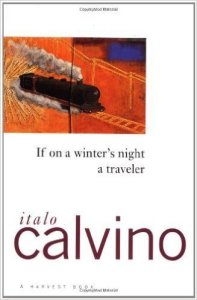
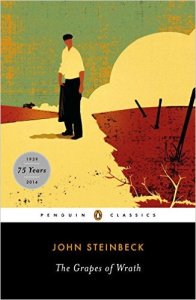



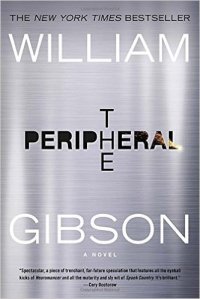



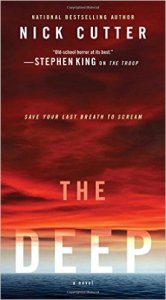
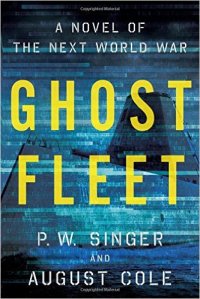
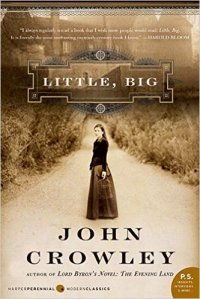
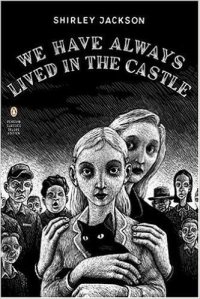


One thought on “Books: Fall 2015”